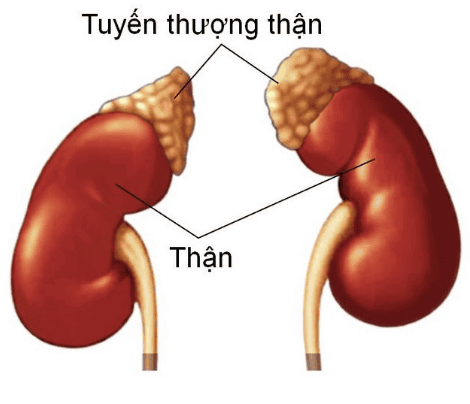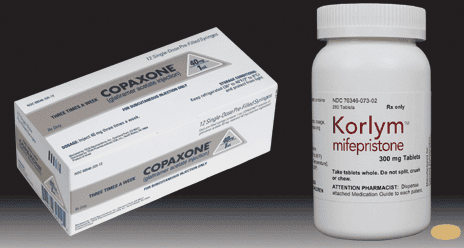This is an automatically translated article.
The cortisol test helps to diagnose diseases, especially cushing's syndrome or renal failure. From this test, it helps the doctor make an accurate diagnosis and give the appropriate course and treatment plan for the patient.
1. What is Cortisol?
Cortisol is a hormone made in the adrenal glands; plays an important role in the metabolism of fats, proteins and carbohydrates.
Most of the time, blood cortisol is bound to a protein, only a small part is in the "free" form and they are biological. Cortisol is usually present in the saliva (pituitary gland) or is excreted in the urine (adrenal gland).
The level of Cortisol in the blood often changes cyclically, increasing or decreasing according to the "day-night" cycle. Specifically, it reaches its maximum (highest) in the early morning, gradually decreases during the day, and reaches its minimum at nightfall. However, this cycle can change if your lifestyle changes erratically or if you have an illness that affects the functioning of the pituitary gland, adrenal gland, and hypothalamus in the brain.

Cortisol đóng vai trò quan trọng trong sự chuyển hóa chất béo trong cơ thể
2. The role of cortisol
Cortisol has many roles and functions, such as:
Cortisol is a factor that affects the process of stabilizing blood sugar. Stabilizes blood pressure Helps regulate the immune system Manages stress.
3. What does the cortisol test mean?
The cortisol test is done to measure the level of the hormone cortisol in the blood or the amount of cortisol in the saliva. Cortisol levels can indicate a problem with the adrenal glands or pituitary gland, possibly with decreased or increased production of cortisol.
The cortisol test evaluates two types of cortisol in the blood, which are bound to a protein and "free" cortisol, in which urinary cortisol is used to assess free cortisol when urine tests are performed, and the concentration of cortisol in the urine is measured. The urinary cortisol level will increase or decrease depending on the increased plasma cortisol concentration.

Đo nồng độ cortisol qua xét nghiệm máu hoặc xét nghiệm nước tiểu
4. In what diseases is the cortisol test indicated?
Blood cortisol test is used to detect diseases such as:
Cushing Addison's disease (primary adrenal insufficiency) Secondary adrenal insufficiency. When finding abnormal cortisol levels, doctors can perform one more test to most accurately determine the cause of that abnormality. Commonly used complementary tests are:
ACTH stimulation - Adrenal cortex hormone (ACTH) Dexamethasone suppression. In addition, a cortisol test is done to look for pituitary or adrenal gland problems such as:
High blood pressure Low blood pressure Obesity High blood sugar (glucose) Loss of body weight Skin problems such as darkening, thin skin Muscle problems: muscle atrophy, muscle weakness Indication of cortisol test for women with irregular menstrual cycle, cycle (irregular menstrual cycle) Indication of cortisol test for children with symptoms Current growth retardation, short stature, or possibly delayed development of cortisol testing in patients with psychosomatic crisis, severe stress causing a life-threatening adrenal crisis requiring immediate medical attention.

Xét nghiệm cortisol để tìm ra vấn đề bất thường ở tuyến thượng thận
4. Factors affecting the cortisol test process
Time to do the test: Because cortisol levels fluctuate during the day, they are usually highest around 7 am and lowest around the time before bed. Therefore, doctors need to determine the appropriate sample collection time. Using drugs that change cortisol levels: It can be drugs that increase cortisol levels: Amphetamine, estrogen, adrenal hormones (corticotropin), .... or drugs that reduce cortisol levels: Androgen, Dexamethasone , barbiturates,... Unscientific diet, patients with alcoholism, depression are also causes that affect test results. Patients with polycystic ovary syndrome, or with acute medical conditions, may experience sudden elevation of urinary cortisol levels (however this concentration exceeds hcm 300 pg in 24 hours). Urinary cortisol levels may change during sleep and during stress or exertion. During specimen collection, rupture of red blood cells may also alter test results. To register for a cortisol test at Vinmec International General Hospital, you can contact Vinmec Health System nationwide, or register online HERE.
MORE
Blood cortisol test in the diagnosis of Cushing's syndrome and adrenal insufficiency Cortisol levels in the blood Harmful effects of Addison's disease (adrenal insufficiency)













